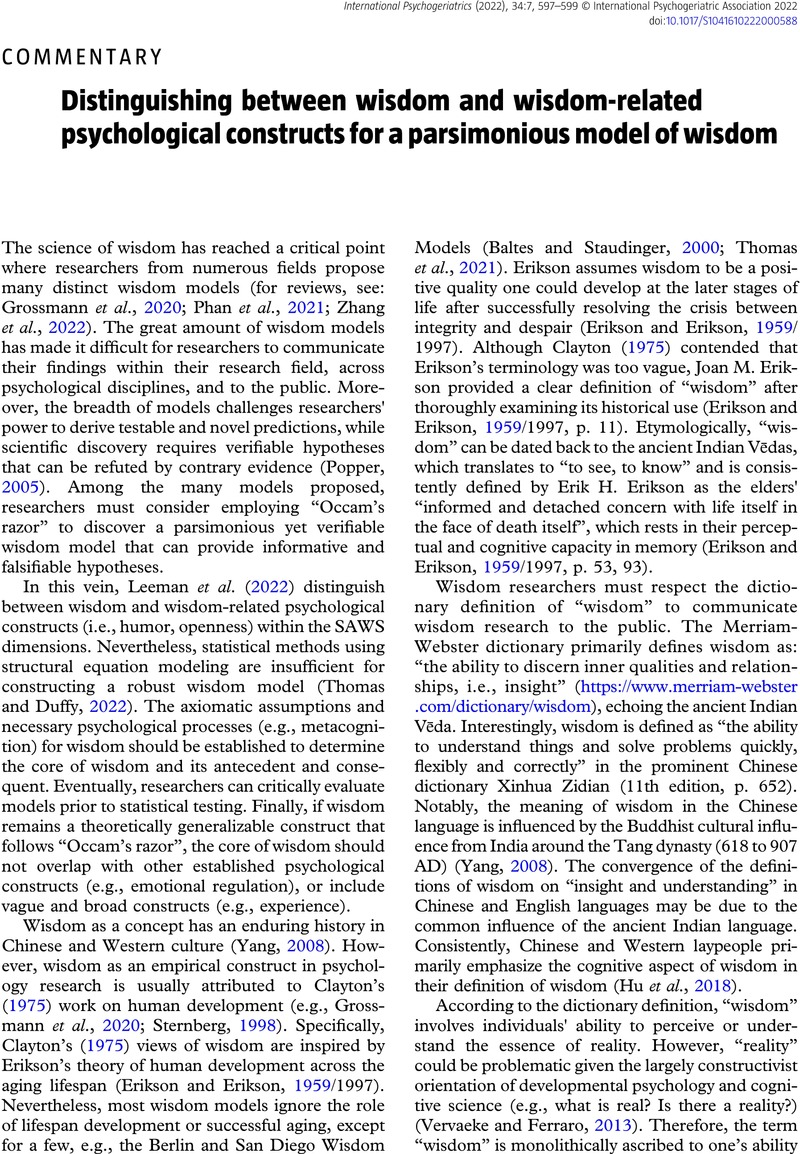Crossref Citations
This article has been cited by the following publications. This list is generated based on data provided by Crossref.
Hu, Chao
Zhang, Haotian
Huang, Chengli
Munroe, Melanie
Feng, Zhe
Ge, Yanying
and
Tian, Yipeng
2023.
Conception of Wisdom Resources Among Chinese Emerging and Young Adults.
Emerging Adulthood,
Vol. 11,
Issue. 6,
p.
1369.





